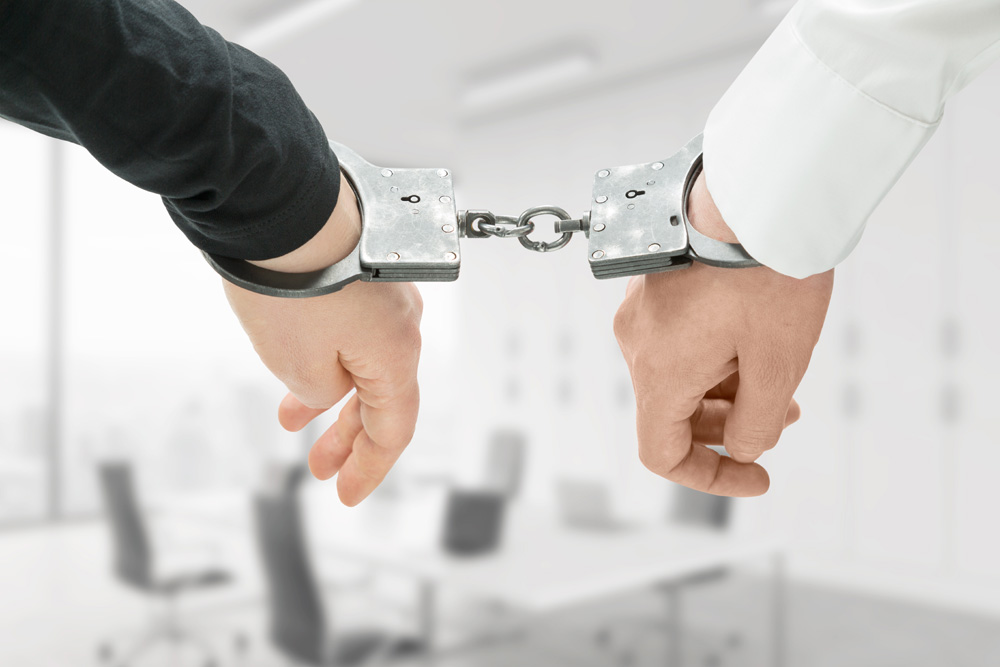
3 Facts You Should Know About Accomplice Liability in Florida
When a crime is committed, you generally think of two parties involved: the perpetrator and the victim. The perpetrator is the person or group of people that has committed the crime, and the victim is the individual affected by the perpetrator’s actions. However, there may be another party that is at fault for the crime.
An accomplice is someone who has personally helped or aided in the crime. Whether this means an individual was physically there to help the perpetrator or that they did something to intentionally encourage the perpetrator, they may be charged in Florida for accomplice liability. This is a very serious charge and requires the professional assistance and knowledge of a criminal defense attorney. For your best shot and immediate action today, the board-certified team at Fighter Law is here to help.
3 Facts You Should Know About Accomplice Liability in Florida
If you have been charged for a crime you did not directly commit, it is likely you are facing accusations of accomplice liability. When navigating these accusations, it’s important to keep the following facts in mind:
There Are Different Categories of Being an Accomplice
Florida has different categories for different levels of aiding and abetting. They include:
- Accessory Before the Fact: An accomplice who assists, encourages, or even hires a person to commit a crime will be considered an accessory before the fact.
- Accessory After the Fact: An accessory after the fact is an individual who willingly and knowingly hides or helps prevent detection of a criminal. This is done to avoid arrest or prosecution of the perpetrator of the crime.
If you did not willingly or knowingly abet the criminal, your lawyer can help prove your intentions were not to facilitate a criminal action. If you had an understanding of what was transpiring but were unable to not participate, you must be able to prove you actively tried to withdraw support or avert the crime. An example of this would be through contacting the authorities or local law enforcement.
An Accomplice Is Not the Same as Conspirator
Florida law defines an individual who has a principal role in the role as a conspirator. This is different from an accomplice, as the conspirator actually has had an active role in committing the crime. The accomplice did not partake in the criminal activity, instead just aided the perpetrator in their actions.
A conspirator may be charged with felony charges if caught.
You Can Be Held to the Same Level of Criminal Charges
Being charged as an accomplice can come with many different charges. This can include the same charges as the principal offender. For example, if you assist in a bank robbery as a driver or someone who helps the robbers avoid arrest after the crime, you may still also be charged with bank robbery. Even though you were not a part of the actual robbery, you are an accomplice and part of the whole process. Additionally, you may be subject to any other charges accumulated during the robbery, including murder or assault.
Accessories after the fact also run the risk of being charged with evading arrest, tampering with evidence, or assisting the offender escape.
Facing Charges For a Crime You Didn’t Commit? Speak With a Dedicated Criminal Defense Attorney Today
Being charged as an accomplice leaves you liable for numerous criminal charges. Having an attorney on your side is imperative to the success of your case. In order to give yourself the best shot at a bright future, speak with a representative from Fighter Law today. Our board-certified team of attorneys and paralegals have successfully helped many clients across Florida reduce or fully remove their pending charges.
Let us fight for your rights today. Begin the process with a free consultation by using our contact form or by calling (407) 344-4837.
Share:
free case evaluation
Fill out the form below for an free evaluation of your case.
Categories
- Birth Injury
- Boating Accidents
- Car Accidents
- Civil Rights
- Criminal Defense
- Cyberstalking
- Divorce
- Dog Bite Injury
- Domestic Abuse Charges
- Domestic Violence
- Drug Charges
- DUI Charges
- Family Law
- Felonies
- Fighter Law Firm
- Firearms
- Firm News
- Guardianship
- Injunction Removal
- Injunctions
- Marketing
- Personal Injury
- Repeat Violence Injunction
- Restraining Order
- Seal and Expunge
- Sex Crimes
- Slip and Fall
- Stalking Injunction
- Theft and Robbery
- Traffic tickets
- Uncategorized

